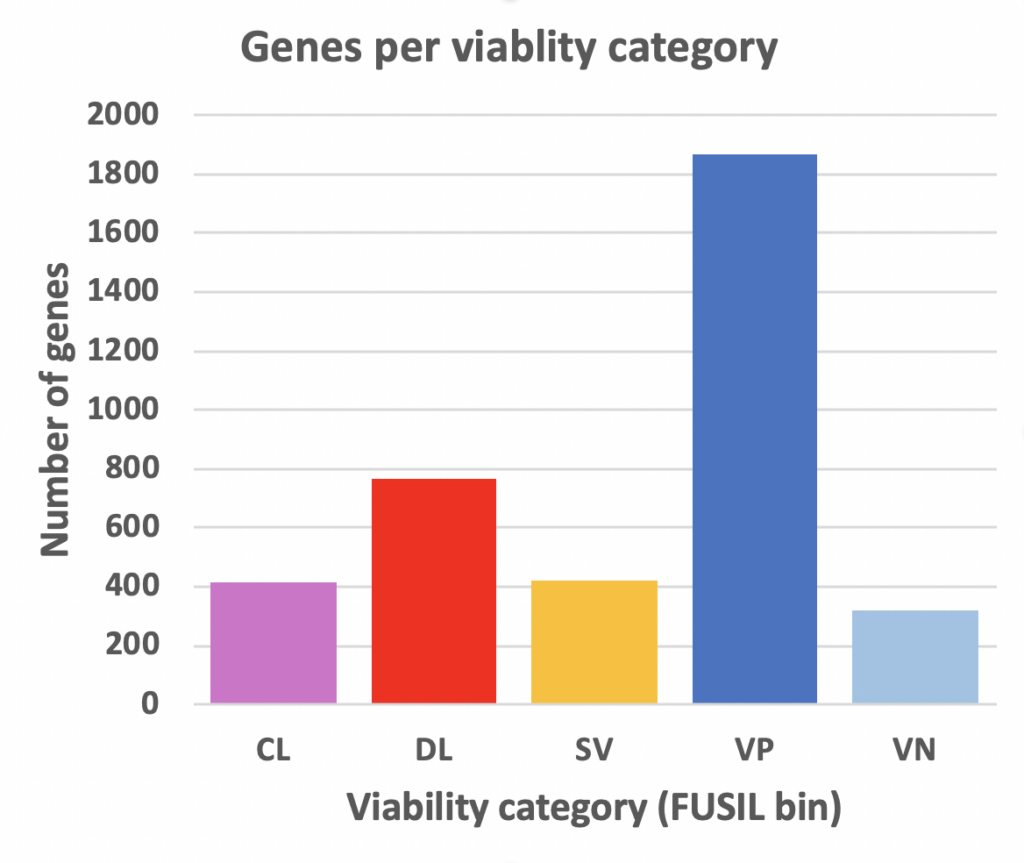The identification of genes linked to a rare disease is one of the most difficult challenges geneticists face. The IMPC is seeking to identify and characterize genes that are essential for organism viability, and attempt to ascertain genes that are critical for development and health and, ultimately, associated to human disease.
IMPC researchers have proposed a gene classification system, Full Spectrum of Intolerance to Loss-of-function (FUSIL), which can be used to identify genes associated with disease. Genes in these bins range from more to less essential. Genes are ascertain to a FUSIL bin by cross comparing viability and phenotyping data from knockout IMPC mice with human cell essentiality scores from the Cancer Dependency map. In this way, genes can be categorised as to how essential they are for supporting life and the likelihood they are associated with de novo genetic disorders.
In this portal, we present integrated views of viability data to help researchers explore the full genetic spectrum of essentiality and aid unvailing yet unknown genetic associations to human disease. More in our blog post here.
IMPC associated publications: High-throughput discovery of novel developmental phenotypes, Nature 2016 | The IMPC: a functional catalogue of the mammalian genome that informs conservation, Conservation Genetics (Special Issue on Adaptation) 2019 | Human and mouse essentiality screens as a resource for disease gene discovery, Nature Communications 2020

FUSIL
Full Spectrum of Intolerence to Loss of Function

HaploEssential
IMPC haploessential screen to study genes most important to life

Essential Data Portal
Submit your gene list to find human and mouse essential scores
IMPC and human cell viability data

FUSIL scores available for 3783 human genes
- CL- Cellular Essential
- DL- Developmental Essential
- SV- Subviable
- VP- Viable with significant phenotype(s) detected
- VN- Viable with no signficant phenotype detected
DL genes are enriched for de novo genetic diseases. Check the IMPC paper on gene essentiality in Nature Communications 2020.
Essential genes data portal
You can access the IMPC essential genes database using GraphQL to query and explore: https://www.gentar.org/essential-genes/console
